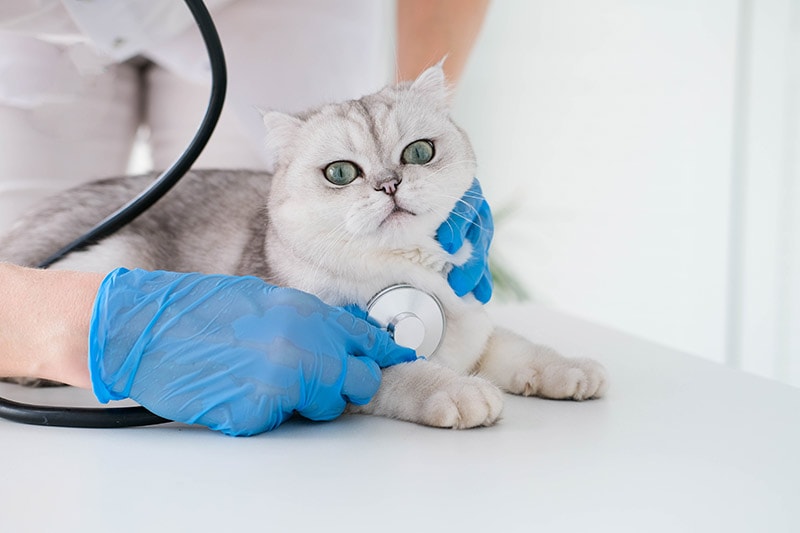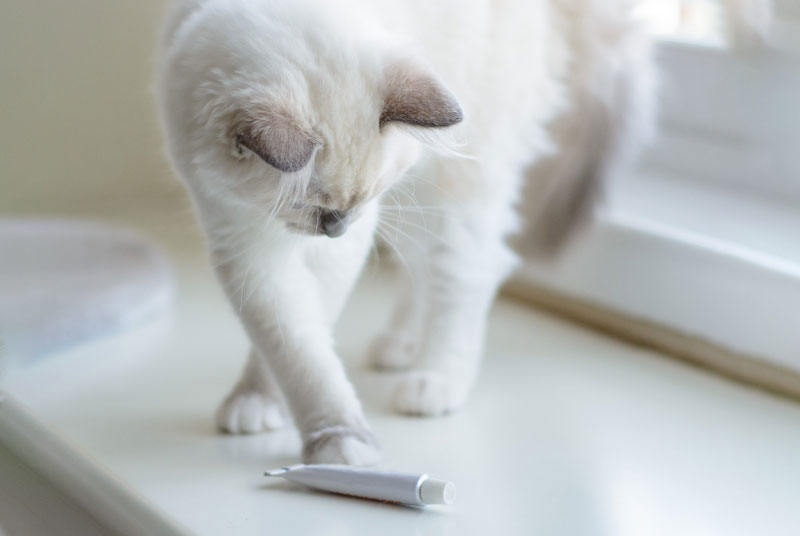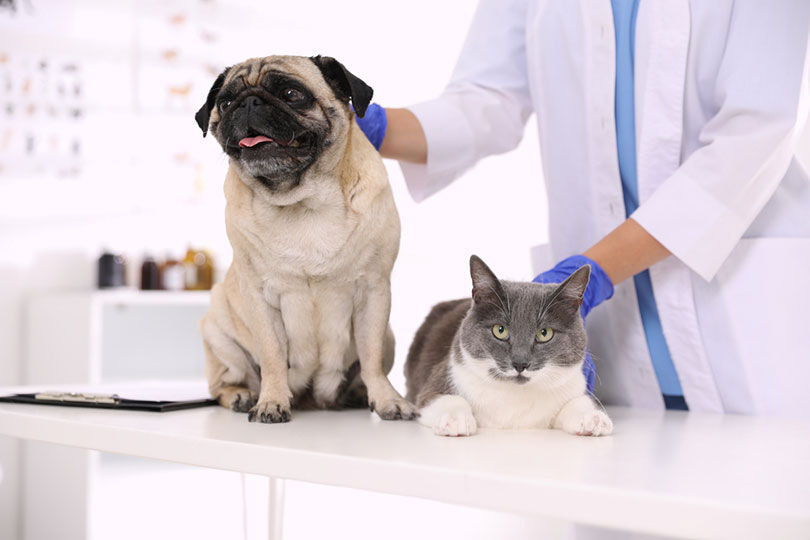Can Cats Get Depressed? Vet-Approved Causes, Signs, & Treatment Guide

Updated on
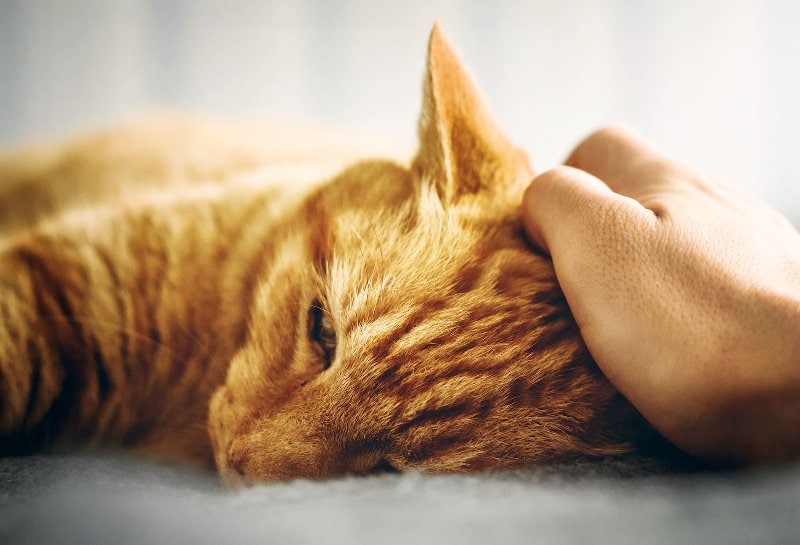
While cats are known for their different temperaments and personalities, most of them are active and outgoing. However, just like humans, cats can exhibit signs of depression. If your cat is suddenly acting out of character or suddenly becomes reserved, it can be concerning.
Although cats are considered moody, their caretakers need to recognize the signs and symptoms of a depressed cat. A drastic change in routine or environment or a recent death can contribute to depression in your cat.
Once you identify the cause of the sadness, you can help your cat get back to their usual self. Here’s all you need to know about cat depression.
What Is Cat Depression?
Cats get depressed. Although they don’t experience the same emotional changes that come with clinical depression in humans, they can exhibit depressed behavior.
In humans, depression can either be situational or medical due to a chemical imbalance in the brain. It’s diagnosed based on the individual self-reported symptoms. It’s marked by mood and personality changes, constant misery, apathy, and loss of interest or motivation.
However, this is different for a cat since they can’t express themselves, the veterinarians have to make assessments based on the clues given about behavior change. The symptoms in your feline friend are also preceded by an event that triggers depression.
Cat depression can be hard to recognize, especially if your pet is a loner and mostly quiet. Therefore, you’ll need to closely keep an eye for signs and symptoms or any drastic changes.
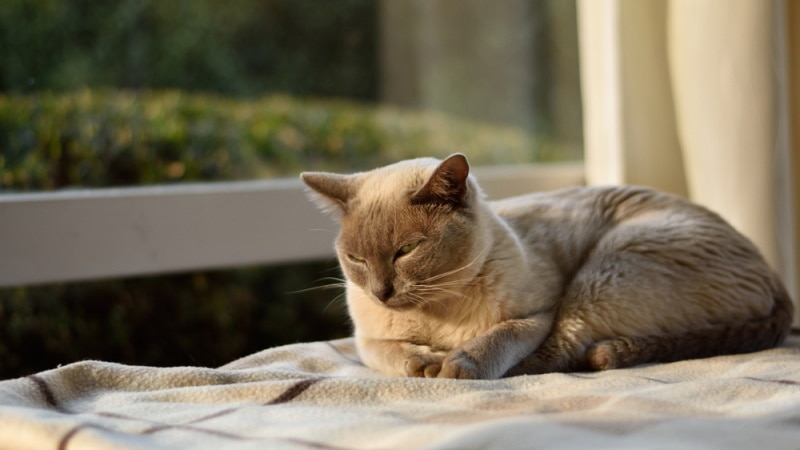
 The 11 Signs That Your Cat Is Depressed
The 11 Signs That Your Cat Is Depressed
Like humans, cats exhibit depression in different ways. Some signs might be physical, while others are clinical. However, some of these symptoms could also be a sign of other underlying medical conditions.
Therefore, if you spot any of these signs, you should visit a vet immediately to rule out any severe issues before starting treatment.
So, what are the common signs and symptoms? Let’s take a look.
1. Loss of Appetite or Not Eating
If your cat was a typical good feeder and enjoyed treats, you might notice a sudden disinterest in food. They might start skipping or avoiding meals and treats they previously enjoyed. By not keeping up with their regular diet, your cat might drastically begin losing weight.
This lack of interest in food could be an indicator of depression. You should schedule a visit to the vet to also rule out any other physical illness.
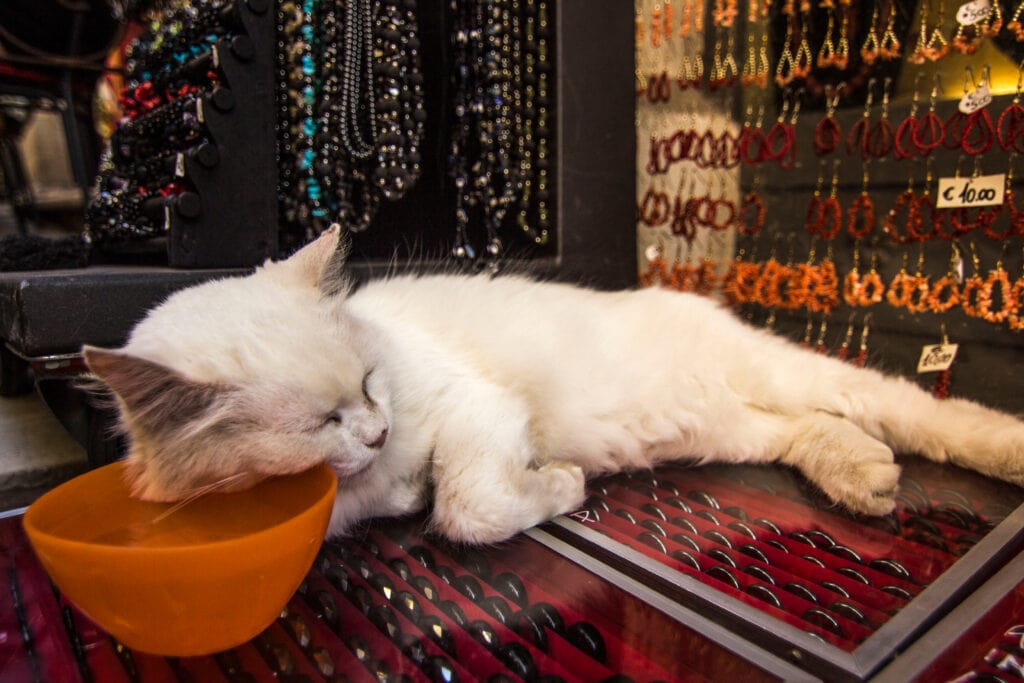
2. Changes in Vocalization
If your cat is depressed, you might notice changes in their vocal cues. They might meow more or less than usual.
Cats that are typically vocal might become quiet, while the more reserved ones become noisy. These changes in vocalizations could indicate that your kitty is unhappy.
Vocal cats normally communicate loudly when they need something such as food, going out, or when they want affection. Once the vocal requests suddenly reduce or stop, there could be an issue. On the other hand, quiet and reserved kitties become loud and agitated while yowling, often without reason.
As a cat owner, you need to listen to the purrs to spot any changes that may indicate sadness.
3. Changes in Sleep Patterns
Cats normally sleep for most of their day. However, sad or depressed cats will tend to sleep even more. Watch out for your cat if they are sleeping when they should be awake or have changed their favorite nap spot; this could indicate that they are sad.
Depressed cats will sleep in odd spaces, appear to be on edge, or reduce their usual sleeping time. Like humans, cat depression will affect your pet’s ability and willingness to sleep.
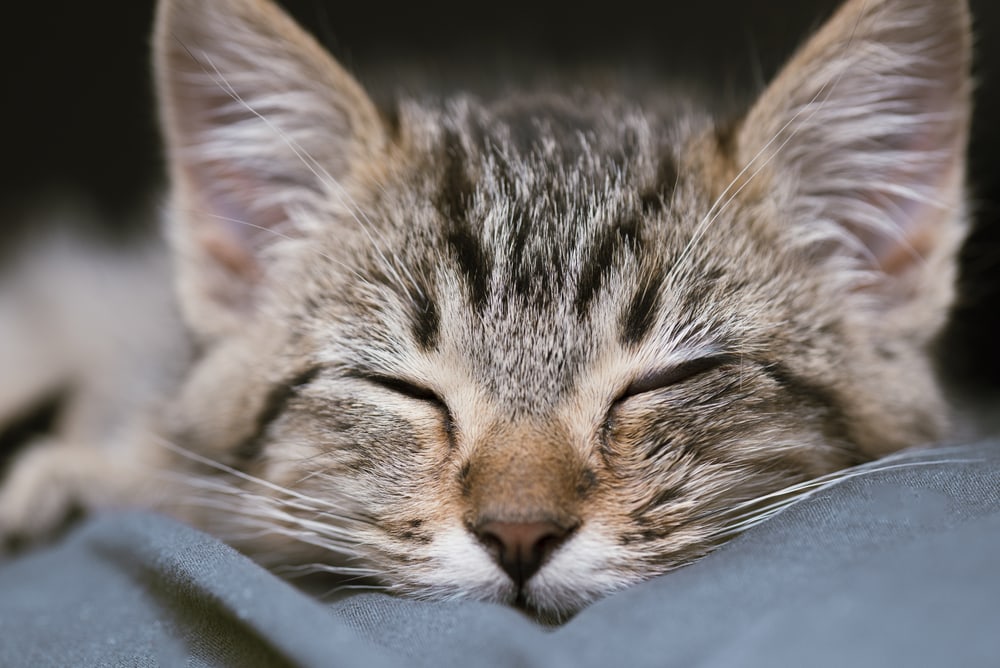
4. Personality and Temperament Changes
Personality changes are one of the most prominent symptoms of cat depression. Cats who typically have a calm and peaceful temperament might suddenly demonstrate increasingly erratic and aggressive behavior. Despite depression being associated with sadness, depressed cats may exhibit more anger.
Therefore, as a cat owner, you need to know your pet’s normal personality to spot changes when they act with aggression or fear. With this, you can get them faster treatment.
5. Changes in Grooming
Cats groom and clean themselves by frequently licking their fur coats and using their saliva and their tongue. However, if you notice that your pet is not grooming themselves, it could be a sign of unhappiness and ill health. Depressed cats will often have unkempt-looking fur coats.
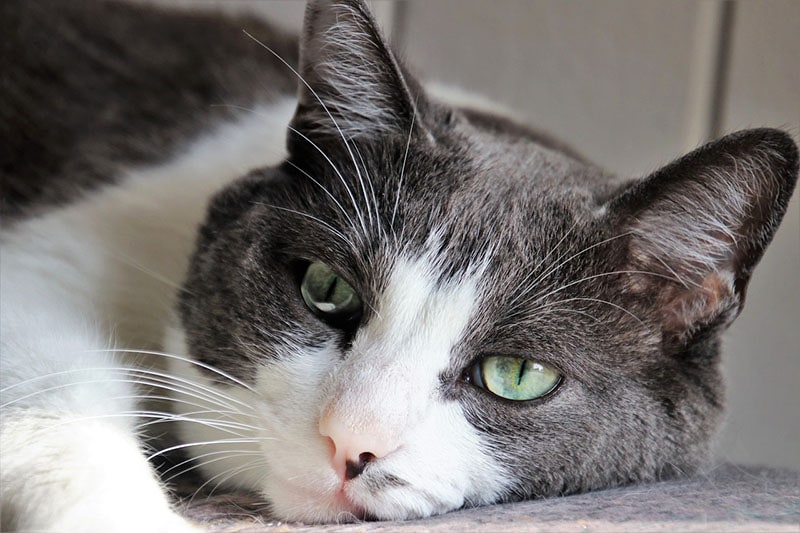
6. Changes in Bathroom Habits and Spraying
Cats are one of the cleanest pets. They use a litter box which is usually placed in discreet places.
However, if your pet suddenly starts urinating or defecating outside of the litter box, this could be an indication of a problem. Your cat might start relieving themselves on your carpet, floor, and walls as a call for help.
Your pet might also start spraying as a means to use their scent to comfort them. For instance, if the cat is stressed over the loss of a fellow pet or human, they will tend to spread their scent over the area where the smell of the missing person lingers. There are many reasons for spraying, but depression is one of them.
7. Excessive Scratching
A depressed or sad cat will look for ways to relieve and express stress and anger in your house. You’ll notice that your pet may start scratching objects more than usual to relieve stress. If they feel threatened, this method may also be a means to mark their territory.

8. Changes in Body Language
Your cat’s body language can give clues on whether they are sad and depressed. You could observe changes in the eye, ear, fur, and body positions.
The ears could be held back, tail tucked, or hair standing on end. These body changes could indicate that your cat may be sad.
9. Hiding for Longer Periods
Cats love their solitary time, especially when sleeping. However, most breeds also enjoy human company and cuddles; therefore, they come out to hang out with their caretakers.
A depressed cat will become more reserved and hide more often. For previously quiet kitties, they’ll become clingy and become more afraid of strangers.
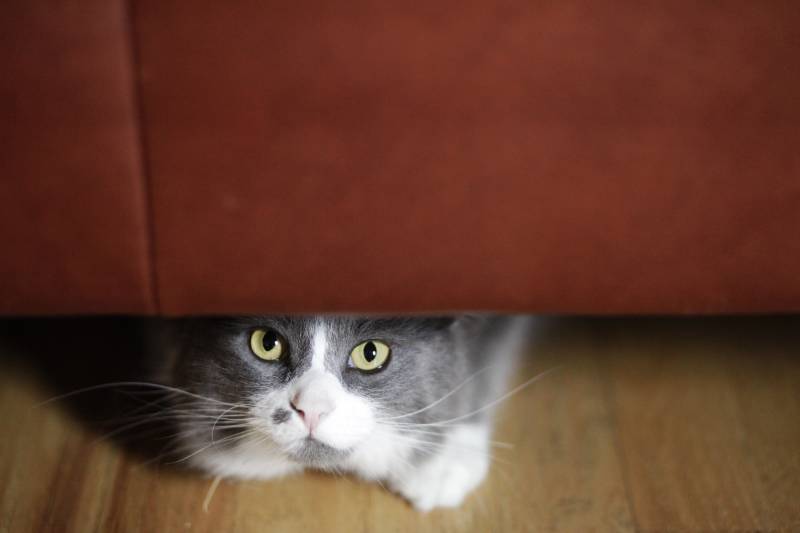
10. Lack of Interest in Physical Activity
Most cats are active and love jumping and running around the house or yard. However, with a sad and depressed cat, they may lose interest in the activities used to engage them, hide and become reclusive. They might also withdraw from physical contact with their owners, such as lap cuddles, and lose interest in their favorite toys.
11. Low Energy Levels
One of the most common red flags for an unhappy cat’s behavior is unusually low energy. This could indicate a mental or physical problem that needs to be addressed by a vet.
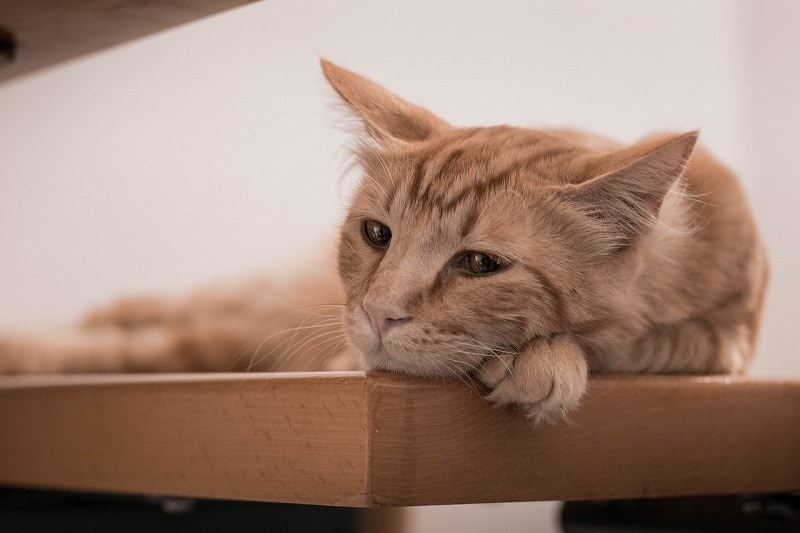
Causes of Cat Depression
A myriad of reasons can cause depression in cats. Like humans, kitties are sensitive and also get triggered by changes in their environment or physical issues. Let’s take a look at some of the leading causes.
1. Loss of a Close Family Member or Pet
Just like humans, cats grieve at the loss of a loved one. When a family member or an animal dies or leaves the household, your cat may grieve and fall into depression.
This happens because your cat may have developed a bond with the person or animal over time. However, this phase is temporary, and your cat will recover and return to normal.
If your cat is depressed because a fellow cat in the household has passed away, you might try introducing a new cat friend after some weeks. However there is no guarantee your cat will accept this new family member just because they just lost a friend. Always speak to your vet if you are considering this possibility.
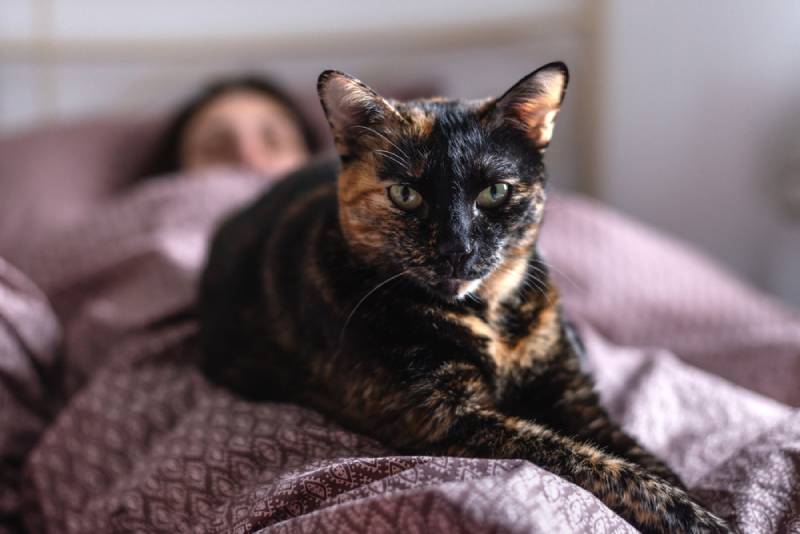
2. Move to a New Home
A move to a new home or location can also be very upsetting to your pet. Cats love routine and familiar areas.
Therefore, if you move your cat from a quiet house in a rural area to an apartment in a noisy building, this big change might affect their mood and behavior. Such moves are a recipe for depression and sadness. Speak to your vet before your move to put in place all possible measures to minimize the stress that your cat may suffer in this situation.
3. The Arrival of a New Baby or Housemate
You need to be careful when introducing a new housemate to the family. If you also just got or adopted a new baby, the cat may feel like they are competing for attention. The presence of new faces may upset your kitty and contribute to depression.
4. Arrival of a New Pet
A new cat or dog in your home may trigger competition. The current pet might start spraying as a means to mark their territory away from the other pets. The presence of new animals could make your cat stressed.
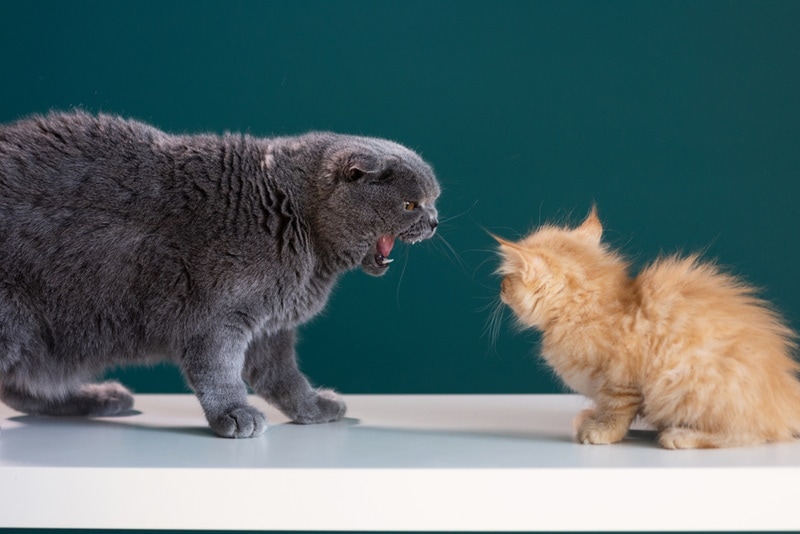
5. Injury
Cats that exercise and run around freely are happier. However, if your cat just got an injury, the pain might force them to stay away from physical activity or from doing things they previously enjoyed and, as a result, make them feel unhappy.
If you notice your pet is looking sadder lately, check whether they have lingering pain from old surgeries or have new injuries.
6. Illness
It’s hard to identify cat depression because most symptoms mimic illnesses. Because of this, your kitty might be depressed because they are sick.
When they are ill, they may be in pain, making it hard to move or play around. They might also lose appetite, have nausea, dental issues, or upper respiratory diseases that cause discomfort.
Serious health problems will affect your cat’s mood. If you become suspicious that your cat is depressed because of a sickness, then you should schedule a visit with your vet as soon as possible.
7. Major Changes in the Home
A change in your cat’s diet and food or moving the litter box can lead your cat to a depressive episode. Having major disruptions in the home such as divorce or separation or changes in your working hours may also upset your cat.
Cats enjoy routine and get upset if things move around.

What’s the Evaluation Process for Depression in Cats?
The first step in helping your cat from depression is visiting a veterinarian to rule out physical medical conditions. After that, your vet will evaluate behavioral problems and may recommend you to contact a veterinary behaviorist. They are better equipped to advise on the best methods to treat or help your cat out of depression.
During an evaluation, the veterinarian will begin by taking a full history of the symptoms from the owner and performing a complete physical examination. Further tests may be done, such as chest x-rays, bloodwork, and ultrasounds. These tests give details on the overall pet’s health and organ function.
If your vet suspects a neurological problem, they may also carry out specific tests, such as a spinal tap and MRI, to check for neurologic disorders affecting the spine or brain. Tumors and inflammatory diseases in the nervous system can result in behavioral changes in cats.
If all the medical tests come back clean, the veterinary can now consider external stressors that might be affecting your kitty.
 Treating Depression in Cats
Treating Depression in Cats
Treating depression in your cat involves making the necessary changes in your cat’s environment to improve your cat’s moods. As the owner, you need to deal with the stressors before turning to any form of medication.
Here are some tips to make your cat happy.
Stick to a Routine
Cats don’t like a disruption in their daily routine. You can help them deal with uncertainty by having similar times for meals, cuddles, and playtime. This will help them feel more comfortable and relaxed.
This tactic is essential even when they have lost a loved one. By giving the meals at the usual time and cuddling them, they’ll feel assured.
In addition, if they’ve just lost a loved one, time is usually the best remedy for major family member changes, whether it’s a kitten, a sibling, a parent, or an owner. Give them time to adjust to living without the family member and observe them to make sure the depression doesn’t worsen.
Schedule More Playtime
If your cat is bored or lacks mental stimulation, they are more likely to sink further into depression. Spend at least 10 to 15 minutes several times a day, engaging your cat in a game. When participating in their favorite game or playing with their toys, they are more likely to be distracted and feel happier.
You can add high perches to your home because cats love climbing. They can use these to look outside. In addition, you can also include scratch posts that they can use to mark their territory and feel more secure.
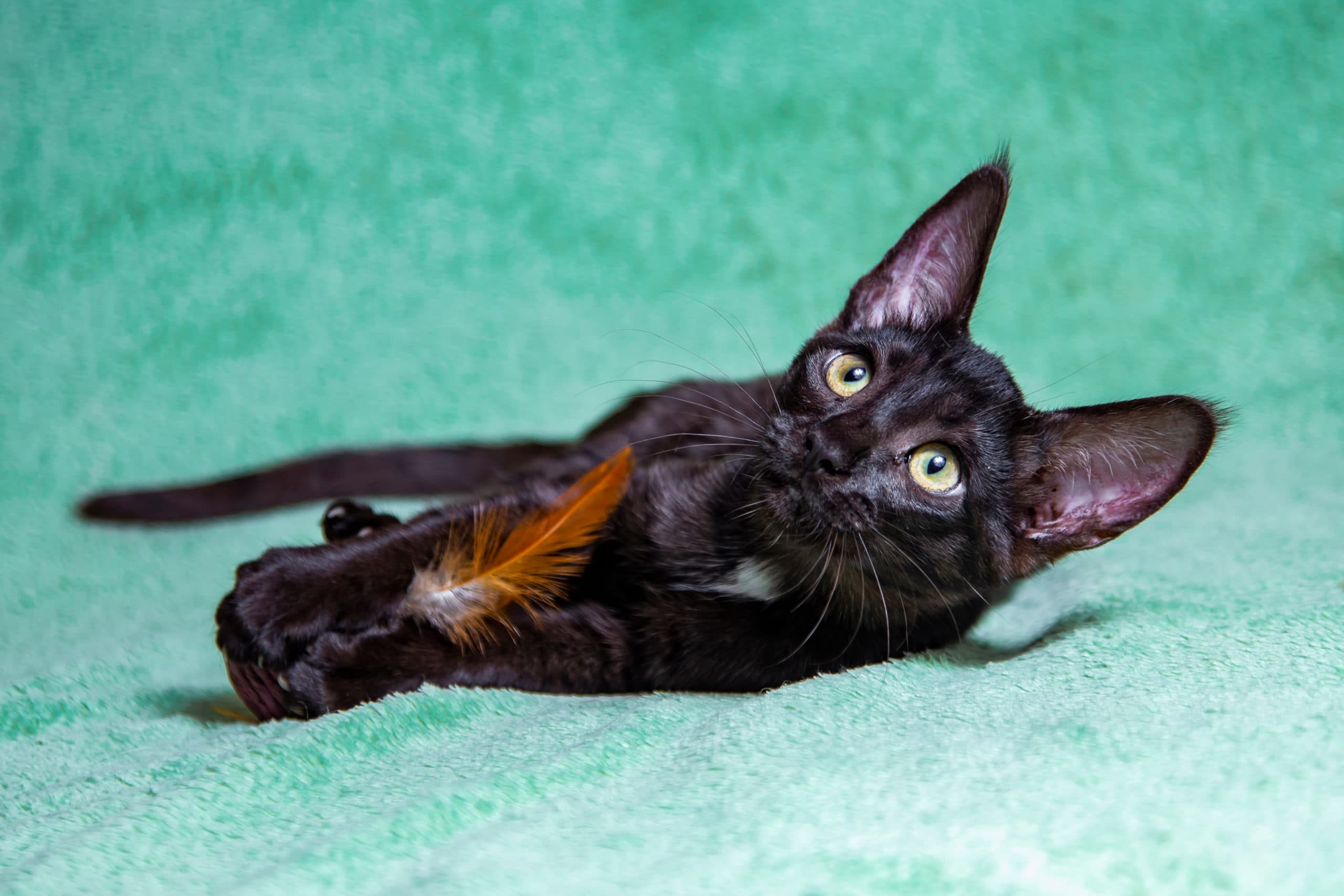
Offer Special Treats
If your cat is not eating properly and has a loss in appetite, consult with your vet on the best treats or foods you can add to enhance their meals. If they get special treats, they’ll eat more and be healthy and happy.
Cuddle Them More
Cats love human attention. Increase the cuddles and make them feel loved at all times. If they are reassured, they are more likely to be relaxed and happy. Shower your feline friend with extra love for a few weeks to see whether their behavior returns to normal.
Groom Your Cat
If your depressed cat is no longer grooming themselves, schedule some time to brush their fur. During this grooming period, they’ll feel cared for and increase the bonding between the pet and their caretaker.
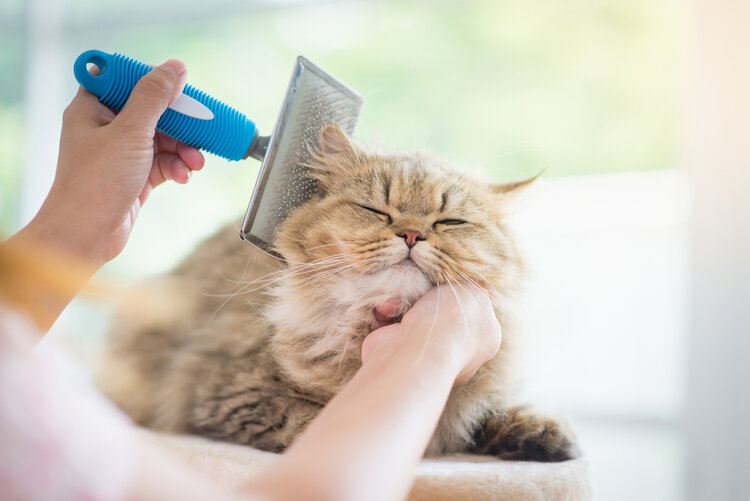
Have Multiple Cat Items
If your home is a multiple-pet household, you need to buy separate items for each pet to reduce competition. Provide enough resources by having multiple feeding and drinking stations, plenty of toys, extra litter trays, and lots of hiding places. If these don’t work, you’ll need guidance from a pet behaviorist.
Get Them Company
Pets that are not used to staying alone or just lost a close companion will be very lonely. To help them heal and not feel alone, you can get a pet sitter during the day, play some music to keep them company or add a new pet. However, when adding a new pet, you’ll need to be careful if they have a hard time getting along.

Use Medication
A veterinarian may recommend medications for cats that are suffering from severe cases of depression. In addition, if the situation does not improve, there are cat anxiety medications that help improve mood disorders.
A veterinary behaviorist can walk you through these behavior issues and provide behavior modification suggestions as well as medications.
 Can Cats Die from Depression?
Can Cats Die from Depression?
Depression is not fatal but can result in severe deterioration of your cat’s health. If your cat is not eating or drinking normally, they could become dehydrated, lose weight, and become very weak. Therefore, if the depression is left untreated, your cat may develop further medical conditions that are fatal.
Summary
Depression in cats is a point of concern. With proper treatment and help from your vet, it can be short-lived, and your cat will go back to normal. Unfortunately, the depressive episodes can back easily if there are any changes in the kitty’s environment, an illness, or the loss of a loved one.
As a cat owner, you can avoid recurrent depression by ensuring there’s minimal disruption in your cat’s daily routine and regular visits to the vet. If the symptoms are identified early, your cat can live happy and healthy for longer.
More questions about your cat’s health and behavior? Take a look at our posts on:
Featured Image Credit: Alexander Andrews, Unsplash



